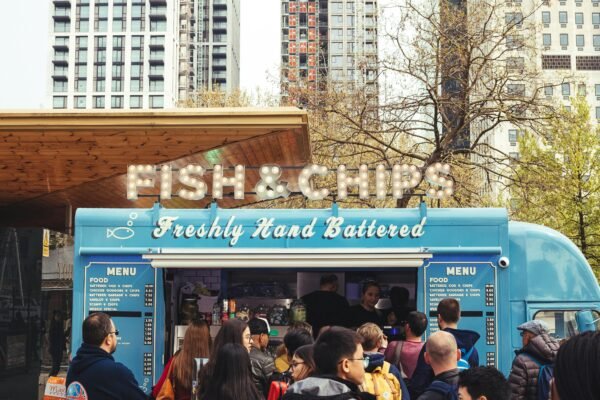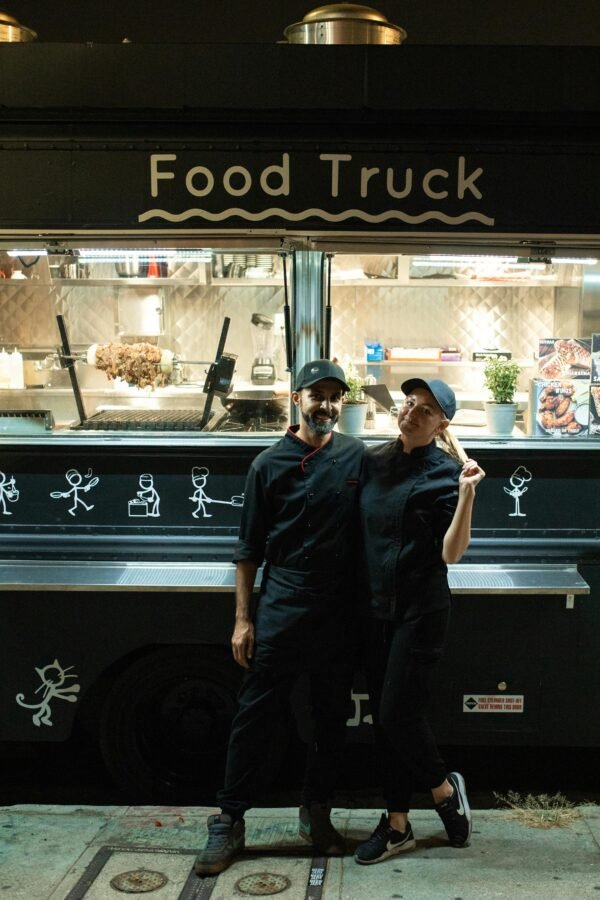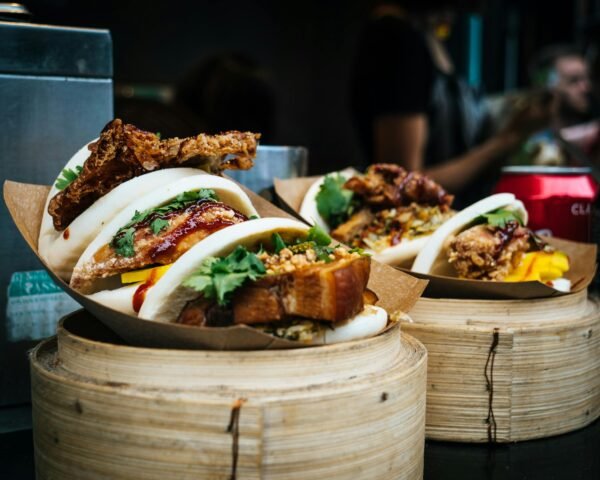
How to Open a Successful Food Truck Business

The food truck industry has exploded in popularity, offering a flexible, creative, and exciting way to enter the food service market. With relatively low startup costs and the freedom to set up in different locations, a food truck business lets you share your passion for food with a wide audience. However, like any business, running a food truck successfully requires careful planning, dedication, and a clear strategy.
If you’re considering starting your own food truck, here’s a step-by-step guide to help you turn your culinary dreams into a thriving business. A strong foundation in culinary studies can also provide invaluable knowledge in food preparation, menu planning, and customer service.
1. Develop Your Concept and Menu
Every successful food truck has a unique concept that sets it apart. Think about the type of cuisine you’re passionate about, whether it’s gourmet burgers, vegan street food, or fusion dishes. Your concept should be distinctive yet simple enough to execute in a compact kitchen. Also, consider your target market – who do you want to attract?
Once you have a concept, start developing your menu. Keep it short, focusing on dishes you can prepare consistently and serve quickly. Your menu should also reflect your concept, giving customers a clear sense of your food truck’s personality.
Pro Tip: Test your menu on friends, family, and potential customers to gather feedback. Refining your dishes before launch will help you make a great first impression.
2. Write a Business Plan
A solid business plan is essential, even for a mobile business like a food truck. Your plan should cover all the critical elements, including:
- Startup Costs: Consider the cost of the truck, kitchen equipment, licenses, insurance, and initial stock.
- Operating Costs: Calculate your monthly expenses, including fuel, maintenance, and food costs.
- Revenue Projections: Estimate your potential sales based on your menu pricing, serving capacity, and expected customer volume.
- Marketing Plan: Outline how you’ll attract and retain customers, from social media to local partnerships.
Having a clear business plan will help you stay organised and provide a roadmap for reaching profitability.

3. Secure Funding
While a food truck business is generally less expensive than a traditional restaurant, it still requires an initial investment. Typical startup costs can range from £10,000 to £100,000, depending on factors like the truck’s size, kitchen equipment, and branding.
If you don’t have the funds available, consider different financing options. Many food truck entrepreneurs secure small business loans, while others seek private investors or crowdfund to raise capital. A clear business plan can help convince investors or lenders that you’re serious about making your food truck a success.
4. Purchase and Equip Your Truck
Once you’ve secured funding, it’s time to buy your truck. You can either purchase a new truck, which can be more costly but reliable, or buy a used one, which can save money but may require repairs. Ensure that the truck meets local safety and health regulations.
After purchasing the truck, fit it with the necessary kitchen equipment, such as grills, refrigerators, and food prep stations. Keep the layout simple and efficient, allowing you to prepare food quickly in a limited space.
Pro Tip: Work with a professional to ensure your truck design maximises space and complies with UK health and safety standards.

5. Obtain Licences and Permits
Operating a food truck in the UK requires specific licenses and permits. Make sure you:
- Register with Your Local Council: Your truck must be registered with the local council where you plan to operate. Councils often have different requirements, so research the specific rules in your area.
- Obtain a Street Trading Licence: Most councils require a street trading licence to sell food on public land.
- Get a Food Hygiene Certificate: All staff must hold a Level 2 Food Hygiene Certificate, and the truck will need a food hygiene rating from the Food Standards Agency.
- Secure Public Liability Insurance: Protects your business in case of accidents involving customers.
Compliance with all legal requirements will help you avoid fines and ensure a smooth start.
6. Build a Strong Brand
Branding is vital to stand out in a competitive market. Your food truck’s branding should reflect your personality, concept, and food style. Consider the following elements:
- Logo and Design: Your truck should have eye-catching visuals that draw attention and communicate your brand’s essence.
- Social Media Presence: Platforms like Instagram and Facebook are ideal for showcasing your dishes, announcing locations, and building a loyal following.
- Website: Having a basic website where customers can view your menu, find your schedule, and contact you adds professionalism.
Engaging visuals and a strong online presence will make your truck memorable and help you reach a wider audience.
7. Find the Right Locations
Location is everything in the food truck business. Popular spots include business districts, parks, markets, and festival grounds, where foot traffic is high. Building relationships with event organisers can also open up opportunities to serve at private events and corporate gatherings.
Experiment with different locations to find where your food truck attracts the most customers. Social media is an excellent tool for informing customers of your current and upcoming locations.

8. Focus on Marketing and Customer Engagement
Effective marketing can help grow your customer base and create a loyal following. Here are some strategies to consider:
- Social Media Updates: Post daily about your menu, specials, and locations. Engage with followers by responding to comments and sharing customer photos.
- Loyalty Program: Offer a reward system to encourage repeat customers, such as a free meal after ten purchases.
- Collaborations and Partnerships: Collaborate with other local businesses, influencers, or breweries for cross-promotions.
Customer engagement doesn’t end online – personal interactions with customers are just as important. Friendly service and remembering regulars can help foster a community around your brand.
9. Deliver Consistency and Quality
Customers return to food trucks that offer delicious food and dependable service. To build a loyal customer base, make sure your food quality remains consistent. Develop standardised recipes and procedures that make it easy for you (or staff) to replicate each dish with precision.
Consistency in food quality and service will keep customers coming back, helping you build a positive reputation in your local food scene.
10. Adapt and Innovate
The food truck industry is constantly evolving, with trends shifting from one season to the next. Keep your business relevant by staying open to new ideas and willing to adapt:
- Seasonal Menu Changes: Incorporate seasonal ingredients or rotate your menu to offer variety.
- Customer Feedback: Listen to your customers’ suggestions and feedback to improve and tailor your menu.
- Innovative Offerings: Consider limited-time specials or collaborate with local producers to offer unique products.
A willingness to adapt not only keeps your food truck fresh but also shows customers you’re committed to providing an exceptional experience.
Conclusion
Opening a successful food truck business in the UK requires passion, dedication, and smart planning. From creating a unique concept and sourcing quality ingredients to securing the right permits and building a loyal customer base, every step plays a critical role in your success.
By focusing on high-quality food, outstanding service, and strong branding, you can create a mobile dining experience that resonates with customers. Whether you’re serving in a bustling city centre or at a local festival, your food truck has the potential to become a beloved part of the community.
With careful planning, a dash of creativity, and commitment to your vision, your food truck business could be the next big thing in the UK’s vibrant food scene.













































